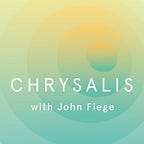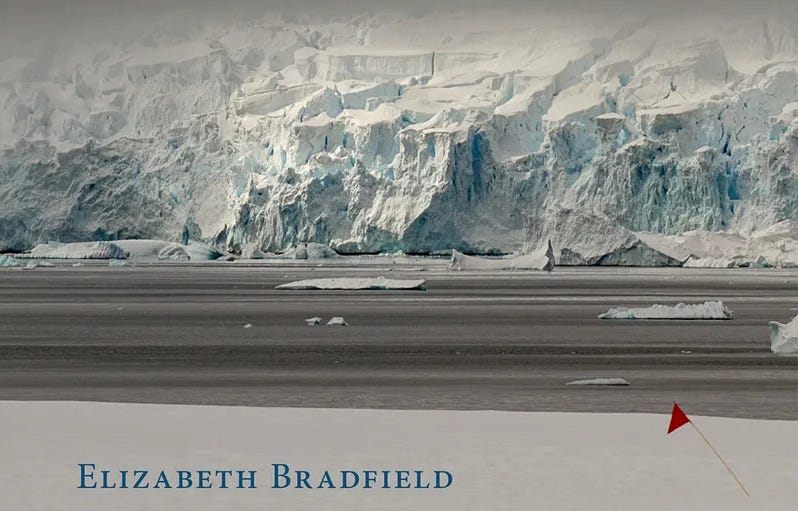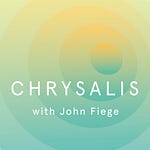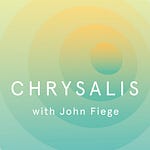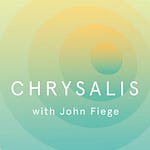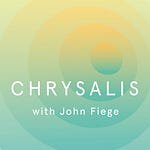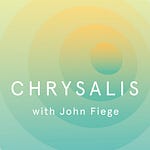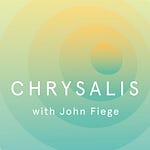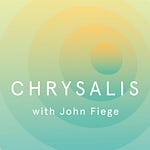When we’re gone from this Earth, what will we leave behind? What will we pass down to those who come after us?
Plastic. If nothing else, lots of plastic. A plastic bag might take 20 years to break down, but harder, thicker plastics, like toothbrushes, might take 500 years or more to break down.
Elizabeth Bradfield is a poet and naturalist who sees first hand, in her work as a marine educator, the ravaging impacts of plastic on marine life. But she also confronts plastic and our collective addiction to it as a subject of poetry.
Her poem, “Plastic: A Personal History,” is what she calls a “cranky naturalist” poem, which is pretty funny, but embedded in the humor are big questions: how has plastic become part of who we are as individuals and as a species? Now that we know the dangers and devastating effects of plastic production and disposal, how must we change our relationship to this petrochemical product? What kind of world are we making, and what alternatives do we have?
Elizabeth Bradfield is the author of five collections of poetry, including, most recently, Toward Antarctica. She co-edited the newly-released anthology, Cascadia Field Guide: Art, Ecology, Poetry. Her work has appeared in The New Yorker, Atlantic Monthly, Poetry, The Sun, and Orion, and her honors include the Audre Lorde Prize and a Stegner Fellowship. She teaches creative writing at Brandeis University and is founder and editor-in-chief of Broadsided Press. She lives on Cape Cod, where she also works as a naturalist and marine educator.
This episode of Chrysalis is part of the Chrysalis Poets series. You can listen on Substack, Apple Podcasts, and other podcast platforms.
Please rate, review, and share to help us spread the word!
Elizabeth Bradfield
Born in Tacoma, Washington, Elizabeth Bradfield is the author of five collections of poetry, most recently Toward Antarctica, which uses haibun and her photographs to query the work of guiding tourists in Antarctica, and Theorem, a collaboration with artist Antonia Contro.
Bradfield is also co-editor of the anthologies Cascadia Field Guide: Art, Ecology, Poetry, and Broadsided Press: Fifteen Years of Poetic/Artistic Collaboration, 2005-2020.
A professor and co-director of Creative Writing at Brandeis University, Bradfield has received a great deal of recognition through awards and fellowships. Her work has appeared in The New Yorker, Atlantic Monthly, Poetry, The Sun, Orion, and her honors include the Audre Lorde Prize and a Stegner Fellowship.
Based on Cape Cod, Liz also works as a naturalist, adding an engaging and proactive component to back up the prowess of her evocative literature. She also is the founder and editor-in-chief of Broadsided Press, a journal and grass-roots initiative that, through monthly publications, aims to expose the broader community (beyond academia) to relevant literature and art.
“Plastic: A Personal History”
By Elizabeth Bradfield
How can I find a way to praise
it? Do the early inventors & embracers
churn with regret? I don’t think my parents
—born in the swing toward ubiquity—chew
& chew & chew on plastic. But of course they
do. Bits in water, food-flesh, air.
And their parents? I remember Dad
mocking his mother’s drawer of saved
rubber bands and his father-in-law’s red,
corroded jerry can, patched and patched,
never replaced for new, for never-
rusting.
Cash or plastic? Plastic. Even
for gum. We hate the $5 minimum.
Bills paperless, automatic, almost
unreal.
My toys were plastic, castle
and circus train and yo-yo. Did my lunches
ever get wrapped in waxed paper or
was it all Saran, Saran, Saran?
Sarah’s mom
was given, in Girl Scouts, a blue sheet
of plastic to cut, sew, and trim with white piping
into pouches for camping. Sarah has it still,
brittle but useful. Merit badge for waterproofing.
For everlasting.
You, too, must have heard stories,
now quaint as carriages, of first plastic, pre-plastic.
Eras of glass, waxed cloth, and tin.
Of shared syringes.
All our grocery bags, growing up,
were paper. Bottom hefted on forearm, top
crunched into grab. We used them
to line the kitchen garbage pail.
Not that long
ago, maybe a decade, I made purses for my sisters
out of putty-colored, red-lettered plastic Safeway
bags. I’d snag a stack each time I went, then fold
and sew, quilt with bright thread, line with thrift store
blouses. They were sturdy and beautiful. Rainproof
and light. Clever. So clever.
I regret them.
And the plastic toothpicks, folders, shoes that seemed
so cheap, so easy, so use-again and thus
less wasteful, then. What did we do before
to-go lids? Things must have just spilled
and spilled.
Do you know
what I mean? I mean, what pearl forms
around a grain of plastic in an oyster?
Is it as beautiful? Would you wear it?
Would you buy it for your daughter
so she in turn could pass it down and
pass it down and pass it down?Recommended Readings & Media
Transcript
Intro
John Fiege
When we’re gone from this Earth, what will we leave behind? What will we pass down to those who come after us?
Plastic. If nothing else, lots of plastic. A plastic bag might take 20 years to break down, but harder, thicker plastics, like toothbrushes, might take 500 years or more to break down.
Elizabeth Bradfield is a poet and naturalist who sees first hand, in her work as a marine educator, the ravaging impacts of plastic on marine life. But she also confronts plastic and our collective addiction to it as a subject of poetry.
Her poem, “Plastic: A Personal History,” is what she calls a “cranky naturalist” poem, which is pretty funny, but embedded in the humor are big questions: how has plastic become part of who we are as individuals and as a species? Now that we know the dangers and devastating effects of plastic production and disposal, how must we change our relationship to this petrochemical product? What kind of world are we making, and what alternatives do we have?
I’m John Fiege, and this episode of Chrysalis is part of the Chrysalis Poets series.
Elizabeth Bradfield is the author of five collections of poetry, including, most recently, Toward Antarctica. She co-edited the newly-released anthology, Cascadia Field Guide: Art, Ecology, Poetry. Her work has appeared in The New Yorker, Atlantic Monthly, Poetry, The Sun, and Orion, and her honors include the Audre Lorde Prize and a Stegner Fellowship. She teaches creative writing at Brandeis University and is founder and editor-in-chief of Broadsided Press. She lives on Cape Cod, where she also works as a naturalist and marine educator.
Here is Elizabeth Bradfield reading her poem, “Plastic: A Personal History.”
---
Poem
Elizabeth Bradfield
“Plastic: A Personal History”
How can I find a way to praise
it? Do the early inventors & embracers
churn with regret? I don’t think my parents
—born in the swing toward ubiquity—chew
& chew & chew on plastic. But of course they
do. Bits in water, food-flesh, air.
And their parents? I remember Dad
mocking his mother’s drawer of saved
rubber bands and his father-in-law’s red,
corroded jerry can, patched and patched,
never replaced for new, for never-
rusting.
Cash or plastic? Plastic. Even
for gum. We hate the $5 minimum.
Bills paperless, automatic, almost
unreal.
My toys were plastic, castle
and circus train and yo-yo. Did my lunches
ever get wrapped in waxed paper or
was it all Saran, Saran, Saran?
Sarah’s mom
was given, in Girl Scouts, a blue sheet
of plastic to cut, sew, and trim with white piping
into pouches for camping. Sarah has it still,
brittle but useful. Merit badge for waterproofing.
For everlasting.
You, too, must have heard stories,
now quaint as carriages, of first plastic, pre-plastic.
Eras of glass, waxed cloth, and tin.
Of shared syringes.
All our grocery bags, growing up,
were paper. Bottom hefted on forearm, top
crunched into grab. We used them
to line the kitchen garbage pail.
Not that long
ago, maybe a decade, I made purses for my sisters
out of putty-colored, red-lettered plastic Safeway
bags. I’d snag a stack each time I went, then fold
and sew, quilt with bright thread, line with thrift store
blouses. They were sturdy and beautiful. Rainproof
and light. Clever. So clever.
I regret them.
And the plastic toothpicks, folders, shoes that seemed
so cheap, so easy, so use-again and thus
less wasteful, then. What did we do before
to-go lids? Things must have just spilled
and spilled.
Do you know
what I mean? I mean, what pearl forms
around a grain of plastic in an oyster?
Is it as beautiful? Would you wear it?
Would you buy it for your daughter
so she in turn could pass it down and
pass it down and pass it down?---
Conversation
John Fiege
Thank you, that's so beautiful. And there's so much going on there, in this poem.
Elizabeth Bradfield
It's funny it started, this poem started kind of just, you know, as a bitter rant.
John Fiege
Well, it didn't end there.
Elizabeth Bradfield
No, it didn't end there.
John Fiege
So, tell me about that. What's the bitter rant?
Elizabeth Bradfield
Oh, just plastic. You know? Honestly, the poem started when my friend Sarah, you know, she's my age. I'm 50, 51. And she showed me this little bag her mom made and I started thinking, "Wow, imagine being the generation that discovered plastic, right? Wow, plastic, so handy," tupperware parties, all that stuff, right? And I mean, to be the generation that saw plastic come into use, I was just really thinking about that shift and, and that's where the poem started.
John Fiege
So I want to just dive into to probably my favorite moment in the poem. So I'm gonna I'm gonna reread this one stanza. You too, must have heard stories now. quaintest carriages have first plastic, pre plastic eras of glass, wax cloth and tin of shared syringes. So that line of shared syringes hit me really hard. You know, prior to this, you mentioned rubber bands and credit cards, and Yo-Yos, and saran wrap, and Girl Scout pouches, all these kind of quaint objects of the past. But shared syringes is like this bomb you drop in the poem, you know, toys, and everyday items, the toils and frivolities of childhood all of a sudden become the life threatening addictions of the teenage years and young adulthood, a plastic addiction that may seem at first to make our lives better, while it slowly kills us. Can you talk about this moment in the poem, like, you know, where did this come from? Maybe, what's going on structurally here that gives this moment in the poem so much weight?
Elizabeth Bradfield
Well, I think a couple of things, I was, you know, I did just want to imagine and put forth the ground truthing that we did have a world before plastic, right? What did we do? There were these things. And then I was thinking, I was thinking, all right, let's think about the advantages of plastic right of disposable syringes of, you know, the problems of disease being swapped out, the doctor comes to your house, or what you're a morphine addict, or whatever, in the Sherlock Holmes-ian kind of way with his glass syringe. But of course, you didn't throw any of that away, right? And so there is a benefit to plastic, right? There's a danger in this older world, as well as the danger in this present world, and so I wanted that pivot and that shift I didn't want this poem to be. I mean, gosh, you know, I think about what my life would have been like, as a queer woman in the era of wax cloth, and tin, it wouldn't have been so happy. So I was thinking of just the darker shadow of that nostalgia, I suppose.
John Fiege
Yeah, I mean, it's so interesting to start with nostalgia. And then, I mean, this is the poetry of it. It's that single turn of phrase changes the color, and the tone of everything so quickly.
Elizabeth Bradfield
Yeah and I really, you know, there's, I think, you know, how you write a poem. And for me, when I write a poem, it's a journey, right? It's an act of discovery. And a lot of the discovery for me in this poem was through sound, as well as through images. And for me, that rhyme of tin and syringes was a discovery, a linkage, and I think it was same as same as earlier in the poem, you know, plastic, even for gum that we hate the $5 minimum, and that gum minimum, right? These kind of resonances. They kind of they tickle me, you know what I mean? So there's like, the darkness and also the humor for me, and also the delight of sound and all of these things swirling around.
John Fiege
Right. Well, you know, the other thing, you know, I got cancer 10 years ago, and, and almost died. Yeah, it was horrendous, but I'm here. But, you know, I spent two years in treatment, and the number of disposable plastic objects that were discarded in front of me to care just for me, just blew my mind away. And at the same time, it saved my life, you know, and so when I get, you know, you talk about how you started this poem as a rant against plastic. And I find myself in that place frequently. But I guess I try to--I don't know, I guess I try to forgive our society, our humanity sometimes, to say, you know, people weren't trying to destroy the planet when they invented plastic. You know, they were trying to create this miraculous thing that would allow us not to cut down so many trees and, and grow so much cotton and, you know, do all these other things that felt like the limits of the natural world.
Elizabeth Bradfield
Oh, I'm so sorry. Not kill so many whales, right? I mean, that used a pre-plastic material.
John Fiege
Exactly. So, you know, I try to remind myself of that. And, you know, you could talk about syringes in kind of a life saving positive way. But you can also talk about them as shared syringes. Which, you know, immediately brings to mind of course, you know, heroin epidemic, and things like that, that have just taken so many lives. So I don't know how, when you were in the midst of the journey for this poem, what were you--how are you weighing those things of the ranch versus kind of checking yourself about nostalgia or other things?
Elizabeth Bradfield
I think what I love about poems is the ability to hold contradiction, you know? And I, you said, check yourself, and I do try and check myself, I try and think in poems, you know, how am I culpable in this moment? You know, I'm not removed from it. And so I wanted, I wanted those layers of complexity to be in the poem. And I think, you know, it's funny, I wrote this poem, the first draft of it, before the pandemic. I think the first draft was in 2017. And of course, during the pandemic, I've thought only more and more and more about plastic and the way that we've turned toward disposables in order to, you know, prevent contagion and contamination and spreading of disease, through our face masks, or even to-go containers. But I think what I really--what angers me about plastic in our lives, is how thoughtlessly it can enter, right? And I think I wanted a poem that used a little bit of humor, to possibly suggest that we can think twice about some of these things, right? Especially a yo-yo. There are still wooden yo-yos out there, right, there's still, there are glasses that we can use instead of plastic cups, we can--all of these things that we can do. And it's not convenient. And so we don't. And so I thought if I could just play a little and be a little funny, and a little snarky, but also kind of acknowledge these darknesses, that might be a way to just shine a little light.
John Fiege
Yeah, definitely. Yeah, and what I was saying before about, you know, being understanding of, you know, how we didn't really know how bad plastic was when it was invented. But the other side of that coin is--
Elizabeth Bradfield
But now we do.
John Fiege
And we're still not doing anything about it. Right? And that's where the, like, the real culpability starts to come of like, you know, what are you doing about it?
Elizabeth Bradfield
Yeah. Are you going to buy another fleece, is that recycled wood porch really a good thing? You know, the recycled wood?
John Fiege
Yeah, well, it's got that word recycled in it.
Elizabeth Bradfield
Oh, absolutely everything is recycled.
John Fiege
Well, let me let me reread another stanza. So this is in the middle. Not that long ago, maybe a decade, I made purses for my sisters out of putty colored red lettered plastic Safeway bags, I had snag a stack each time I went. Then fold and sew quilt with bright thread line with thrift store blouses. They were sturdy and beautiful. rain proof and light, clever, so clever. I regret them. So there again, that last line is so cutting, "I regret them." You set us up to see your kind of crafty upcycled purses, as, you know, practical, durable, ecologically responsible. But then you regret them. So I have questions about that. So I see the complicated relationship we have to plastic in this in this section of the poem: It's incredibly durable and malleable and useful, and in some ways, it can allow us to reduce our use of other resources. But there's this dark underside, again, like we were talking about before, to this durability and persistence in the environment, specifically. So maybe you regret stealing a bunch of Safeway bags so you weren't actually upcycling but I was hoping you could just talk a little bit about you know, what do you regret?
Elizabeth Bradfield
Yeah, I mean, I think to what you were speaking about before when you read that other stanza, too, in terms of form, for folks who haven't seen this poem, there's a there's a dropped line here, right? "Clever, so clever." And then a little bit of space and the next line, "I regret them," drops down, a continuation, but a break. And I wanted that break, you know, that pause and I wanted to allow the poem to be caught up in that kind of delight and joy of making, you know, I was totally broke, I wanted to make something pretty for my sisters. I felt like I was, yeah, upcycling, I suppose, I'm not sure the word existed then, it probably did. But yeah, make something new, free from what was at hand, and I love doing things like that. And I was kind of, you know, a little, a little in love with myself for coming up with this awesome plan. And pulling one over on Safeway.
John Fiege
Free bags, I'll take some!
Elizabeth Bradfield
And they were really cute little purses. I'm not a purse kind of person. I wonder if they still have them? I have no idea. But of course, now looking back, I'm like, "Oh my God. That's what I regret," that I would even think of this as a gift to give to, to spend all that time with that plastic, making this thing for my sisters, who I love. What an idiot, you know. And I was just, I was so blind to that at the moment. I was just in love with the making. And, you know, 10 years ago, we knew plastic was bad. But it just it wasn't, I don't know, the alarm bells were not as heightened. I was living at the time in Alaska. And we hardly had recycling. Paper recycling, no. Plastic recycling, no, you know, so even to that extra use adds another another layer, right? But yeah, I was living in a place where even, ostensibly, there was no recycling happening.
John Fiege
So, you know, you can pay a lot of money right now to buy a fleece that's made from recycled plastic bags. And that is marketed as better than creating new plastic. I can't do the math about you know what the waste is in one direction or the other. But it seems on the surface like "Yeah, that's better. If you're going to have a fleece jacket, that's better."
Elizabeth Bradfield
Oh, no.
John Fiege
Not at all. You don't even think the recycled fleece is better?
Elizabeth Bradfield
No, because, okay, wear wool. But also, those fleeces, when you wash them, the microfibers come out, and they go out through your gray water. And they go through if you, you know, if you're on a septic system, they just go right in, if you're on a sewer system, even they escape out, and they go out into the ocean. So I mean, I work on these, I work as a Marine educator and I work you know, help out with some field work with some whales and I work on the local WhaleWatch boats here as a naturalist and I always tell people like, one thing you can do to help save whales is do less laundry, all the stuff that we wash, it all goes out. And so, no, the recycled bottle into a fleece is, I believe, not good.
John Fiege
Okay, so the better thing is to take that plastic and contain it and never let it release into a water source again.
Elizabeth Bradfield
I think so.
John Fiege
And find completely different alternative natural fibers to use.
Elizabeth Bradfield
Yeah, and I mean, we don't need we don't need plastic bottles. We don't need plastic trash liners. I still use a paper liner in my kitchen. You know what I mean? I I don't use shampoo, I use bar soap. I mean, now we're getting to this, like, what do you reduce your plastic footprint? Because there's plenty of plastic in my life. I mean, right here I am on a computer. My headphones that are plastic are plugged into my ears. You know, I'm not a purist in that way. But I do try and think, is there an alternative?
John Fiege
Well, it's interesting too, because you know, things like upcycling, that's such a hip thing right now. And if you if you look at a lot of the eco fashion kind of world, that kind of all the rage. It's not just about the source of the of the materials, it's about the end destination of the materials.
Elizabeth Bradfield
Yeah.
John Fiege
Let's jump to the last stanza.
Elizabeth Bradfield
Sure.
John Fiege
Do you know what I mean? I mean, what pearl forms around a grain of plastic and an oyster. Is it as beautiful, would you wear it? Would you buy it for your daughter? So she in turn could pass it down and pass it down and pass it down. So you end the poem by expanding these questions of our relationship to plastic to questions of time and value and beauty. And finally, you end with the question of what, you know, specifically with a question of: what would you pass down to your daughter? And thinking on that generational level, we pass down fair family heirlooms, or wealth or knowledge or traditions. But we can also pass down ecological devastation, social pathologies, inequalities, a planet polluted by so much plastic junk, and maybe junk disguised as a pearl, that appears to hold meaning, importance, value and beauty. But really, it's rotten or toxic or plastic at its core. So what's going on here at the end, for you?
Elizabeth Bradfield
I mean, I think for me, that ending is very ironic, because we are passing this down, right? We are passing this down to the generations that follow us. And would that pearl be as beautiful? Probably, if you didn't know what was inside of it. How, you know, how important is it for us to drill down and really examine what we're holding? And what's inside of it? And to really question what's at the heart of what we're carrying? To me, that's a really, really important question.
John Fiege
Right. Right. So how does this poem fit into the broader context of your work and your life? And in you know, are there any other, kind of, stories around this poem, specifically, that you think are interesting?
Elizabeth Bradfield
Well, I kind of consider this poem as a sub-genre of nature poetry, which I call the cranky naturalist poem that I find myself writing quite a bit of, I think there's a lot of poems in, especially my book, once removed, that fall into the cranky naturalist genre. And I mean, I think I write them because I do get cranky. But also, I think they're a little bit funny. And things are so bad that I have to laugh. You know what I mean? I have to laugh, I hope someone else has to laugh too. Because if we're not laughing, then we're turning away. You know, and laughter is a way of engaging, it's a way of being. So I like putting on that posture of the cranky naturalist. And yeah, I do, I work as a naturalist. I work mostly with marine mammals with marine ecology. And so I divide my life between books and boats, basically. And both of those things really feed me and I think a lot about the world that a seal or a whale is swimming through. And the urban ocean, that most of us know, most of us who live on the coasts, whether you're on the East Coast, I live on Cape Cod, or the West Coast, or, you know, the UK, South Africa, Australia, wherever. All of these coasts are very urban coasts. And we, the ocean has been thought of for so long as something that's, you know, "too big to fail." But we're seeing some failures. And it's really concerning to me. So I think a lot about the ocean, which I love so much, you know, that I find inspiration and solace in and has a very complicated human history. Also a really complicated ecological history that we hardly even understand. You know, I mean, we don't even know how long really, humpback whales live. There are so many mysteries out there, and, and we're changing the ocean pretty rapidly. So a lot of my time and thought goes into thinking about ocean ecology, marine ecology.
John Fiege
And in reality, the oceans are too big to ignore, which is exactly what we do. You know? Yeah. Human history is a history of dumping our waste into a water source, whether that's a river or an ocean, or some other place where it seems to our to our eyes to disappear.
Elizabeth Bradfield
Yeah. And in all honesty, we're all downstream. Right? Exactly. I mean, some people more immediately than others.
John Fiege
There's no, there's no stream on a sphere.
Elizabeth Bradfield
That's right. Yeah. So yeah, so In terms of my writing, I read a lot about, there's a little ocean in here, not a ton. But I read a lot about the fulcrum between our social selves and our animal selves, you know, or the other more than human beings that are out there in the world. And I find that a really interesting, sometimes funny, sometimes heartbreaking, sometimes inspiring, and complicated set of dynamics.
John Fiege
And you know, if you're going to start a podcast, eventually you're going to have to call it "The Cranky Naturalist."
Elizabeth Bradfield
My friend Melissa and I, she's a naturalist also. But we had a joke that we should start a podcast called "Wait, wait, don't touch that." All the things that you shouldn't be doing that the naturalist would like, you know, tisk tisk you for doing. Um, number one would be those those recycled fleece sweatshirts.
John Fiege
Wow, I don't buy those recycled fleece sweatshirts, but I've at least given them the benefit of the doubt that it's better than the alternative. But you, you're right, you're totally right. So, right now, there's so much activism going on around our use of plastic and the ridiculous ubiquity of plastic pollution, single use plastic wasteful packaging, microplastics in the bodies of fish and every other living thing in the ocean. How do you see poetry or other forms of art, in relationship to the activist project of understanding and bringing attention to huge problems like plastic pollution,
Elizabeth Bradfield
I think what I love about poetry, in addition to so many other things, is that it's really a form that asks us to occupy both the mind and the heart, right, the intellect and the emotion. And that's what we need to do to move forward and make any kind of progress. Thinking isn't enough, we also have to feel, and to help people connect and care. And so I think, if we can write things that keep these conversations alive, and stop us from just numbing over to the things we know, like we know plastic is bad. But if there's--I was at this show the other day, at the Center for Coastal Studies, which is a research and education nonprofit, on Cape Cod and Provincetown. And there was an art show that had a lot of marine debris-inspired of work in it. And one of the one of the images that was so striking to me, I can't remember the name of the artist, but it was a photographer, and she had collected, you know, tennis balls on the beach, which you find so many of and she set them up in this grid and photographed them in this sterile, pristine way. And they were so beautiful, and so strange and made me look at them differently and think about them differently. And I think that is what I think art and poetry can do to just wake us up and make us consider, slow down a little bit of time, hold a little bit of space, and allow us to feel and not just be numbed out by all this information.
John Fiege
Right. Yeah, and, you know, ice core data, and, and, you know, carbon dioxide level changes over the last couple of decades, you know, that stuff's really important, but it doesn't, it doesn't make you feel in a direct way. I mean, maybe it has an indirect way of making you feel if you have enough background knowledge about what it means and you can translate it in your own head. But also, I think, besides the feeling is, kind of, a there's a pragmatic side to art, too. You know, you have a poetry reading, and you invite people and they come and it's fun. And you get to hang out with people, you know, you're not gonna, you're not gonna read your ice core data to people in a room unless you're at a scientific conference, at a glaciology conference, you know? So it, I mean, for me, also just in this on this very pragmatic level, and just allows us to keep the conversation going, in forms that people are more comfortable with, more excited about, are kind of a positive, beautiful, kind of beneficial side of their experience, rather than something that seems dull and grueling and opaque.
Elizabeth Bradfield
No, absolutely. I think the energy of a rant or a cranky naturalist poem, for me can be a lot of fun and can be a way to vent frustration and rage that that is really necessary, and then hopefully move on, pick up and move on. Right, I think we look for art not just to help us explore the more difficult realities of our world, but also find energy, solace, inspiration to move on, you know, maybe do something a little bit differently to, to not just sink into despair.
John Fiege
Yeah. Yeah.
Elizabeth Bradfield
I think that's really important to me, that poems are part of our greater public discourse. And I think, you know, what you're doing with your podcast is doing that, our conversation is about that also. And, you know, it's not it's not an elite, isolated form, right? Poems want to connect. And they can, and, I welcome every little moment where I see that happening in the world.
John Fiege
Awesome. Yeah, I, I have Irish heritage, although I've never been to Ireland. Although I've never been to Ireland, and I'm completely disconnected from the culture and place in a direct way. But, you know, I've heard that, to this day poets are, like, huge celebrities in Ireland, like, every town has their, like, you know, poet laureate, essentially. And it's such a big deal culturally. And then I think about America and how all of our superstars are, you know, from Hollywood or, you know, or like sports or, you know, business moguls. And sometimes ask myself, how would our society be different if the poets were the superstars here?
Elizabeth Bradfield
I don't know. I think in some circles they are, you know, I was lucky enough to be able to study with the poet Eavan Boland, who's Irish, when I was at Stanford, and I'll never forget her telling us a story of Aer Lingus that the airline for Ireland. They were redesigning their interior cabin and they, I don't know, this kind of cracks me up. But they took one of her poems and wove it into the seat embroidery. And so I just think about all of those people sitting on Eavan Boland's words. And it's kind of gross, and kind of, like, farting into it and all the things that you do on an airplane. But it's also kind of amazing and wonderful that they would want poetry as part of this journey into the sky, too, you know? So yeah, so I wonder the same thing.
John Fiege
Great. Well, can can you end by reading the poem once again?
Elizabeth Bradfield
I'd be happy to.
---
Poem
Elizabeth Bradfield
“Plastic: A Personal History”
How can I find a way to praise
it? Do the early inventors & embracers
churn with regret? I don’t think my parents
—born in the swing toward ubiquity—chew
& chew & chew on plastic. But of course they
do. Bits in water, food-flesh, air.
And their parents? I remember Dad
mocking his mother’s drawer of saved
rubber bands and his father-in-law’s red,
corroded jerry can, patched and patched,
never replaced for new, for never-
rusting.
Cash or plastic? Plastic. Even
for gum. We hate the $5 minimum.
Bills paperless, automatic, almost
unreal.
My toys were plastic, castle
and circus train and yo-yo. Did my lunches
ever get wrapped in waxed paper or
was it all Saran, Saran, Saran?
Sarah’s mom
was given, in Girl Scouts, a blue sheet
of plastic to cut, sew, and trim with white piping
into pouches for camping. Sarah has it still,
brittle but useful. Merit badge for waterproofing.
For everlasting.
You, too, must have heard stories,
now quaint as carriages, of first plastic, pre-plastic.
Eras of glass, waxed cloth, and tin.
Of shared syringes.
All our grocery bags, growing up,
were paper. Bottom hefted on forearm, top
crunched into grab. We used them
to line the kitchen garbage pail.
Not that long
ago, maybe a decade, I made purses for my sisters
out of putty-colored, red-lettered plastic Safeway
bags. I’d snag a stack each time I went, then fold
and sew, quilt with bright thread, line with thrift store
blouses. They were sturdy and beautiful. Rainproof
and light. Clever. So clever.
I regret them.
And the plastic toothpicks, folders, shoes that seemed
so cheap, so easy, so use-again and thus
less wasteful, then. What did we do before
to-go lids? Things must have just spilled
and spilled.
Do you know
what I mean? I mean, what pearl forms
around a grain of plastic in an oyster?
Is it as beautiful? Would you wear it?
Would you buy it for your daughter
so she in turn could pass it down and
pass it down and pass it down?---
Conversation
John Fiege
Beautiful. Liz, thank you so much for joining me today. It's been great.
Elizabeth Bradfield
Thank you for having me. I really, really appreciated this conversation and really enjoyed it, John.
---
Outro
John Fiege
Thank you so much to Elizabeth Bradfield. Go to our website at ChrysalisPodcast.org, where you can read her poem “Plastic: A Personal History,” see some photographs of her at work as a naturalist and marine educator, and find our book and media recommendations.
This episode was researched and edited by Brodie Mutschler, with additional editing by Sofia Chang. Music is by Daniel Rodriguez Vivas. Mixing is by Morgan Honaker.
If you enjoyed my conversation with Elizabeth, please rate and review us on your favorite podcast platform. Contact me anytime at ChrysalisPodcast.org, where you can also support the project, subscribe to our newsletter, and join the conversation.

